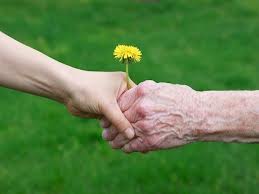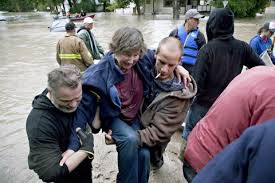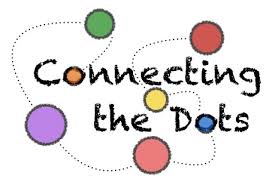As I write this, our city of Calgary and my community of Bowness is experiencing a state of emergency due to unprecedented flooding that has forced the evacuation of around 100,000 people from their homes. A large portion of our downtown is under water, including Stampede Park and the Saddledome. This disaster has been no respecter of persons. Rich and poor have been affected. In the midst of all the loss and chaos, I’ve been amazed at the how this crisis has created a sense of community where so many folks are pitching in and willing to go to extra-ordinary measures to help their neighbors in whatever way they can. There is a strong sense of ownership, and people willing to sacrifice for each other. My questions are, “Is is possible to sustain this sense of ownership and giving and receiving in community beyond the crisis, and if so, how?” and “What are the factors that stymie or kill ownership in community?”
When people have a sense of ownership in the creating of a community, they are willing to make great voluntary sacrifices for the sake of the community. Sacrifice becomes a privilege not obligation.
 One of the factors that sooner or later will stunt or even kill the health of a community is when the same few people are doing all of the giving while the majority of the community are happy to come and receive. This is what we commonly call the 80/20 rule: 20% doing the giving while the 80% receive. If this trend continues in a community, the ‘givers’, who are usually the leaders, either burnout or become resentful that they are doing all the giving.
One of the factors that sooner or later will stunt or even kill the health of a community is when the same few people are doing all of the giving while the majority of the community are happy to come and receive. This is what we commonly call the 80/20 rule: 20% doing the giving while the 80% receive. If this trend continues in a community, the ‘givers’, who are usually the leaders, either burnout or become resentful that they are doing all the giving.
Furthermore this pattern breeds a culture of immaturity in the rest of the community. The 80% come happy to consume but not contribute. This consumer mindset and practice results in people treating community like a commodity where they can pick and choose what goodies they like, and become critical about those goods and services that are not meeting up to their expectations. They don’t own the community and when the community is not meeting their needs they pick up and leave. In church culture, we call this the migration or shuffling of the sheep from pen to pen in search of greener grass.
“As leaders we need to be training people how to be be self-feeders and empower them to care for each other.”
While it is true that many people have been deeply hurt within church communities and need a place to heal and process these hurts, some communities develop an identity around people’s pathos or sickness, leading to a culture of navel gazing, negativity, and narcissism. The ethos of the community is created around being against something, or bad mouthing everything and everyone, as well as a self-centered attitude of victimization. The tone of the gatherings quickly turns into a complaining session about what’s wrong with the existing systems or institutions of government and church, and what people think the organizations should be giving them rather than how they can be a solution to what’s broken. People never get better and stay stuck in their unhealthy patterns of behavior spiritually, emotionally, financially, and relationally. Instead of taking personal responsibility for their choices and their healing, there is blame shifting. This is enabled by leaders who are always bailing folks out, coddling people, and assuaging this ‘woe is me’ mentality. This focus on navel gazing and negativity repels healthy folks. The community becomes ingrown and eventually dies or people turn on each other.
The other tendency I’ve noticed in faith communities is that some people, when they are going through a hard time, will tend to isolate from the community. They disappear and don’t let anyone know. What we fail to realize is that our decisions do not just impact us, but affect the rest of the community. We are not an island unto ourselves. I do believe that there are times when we need distance from the community for a period of time. A healthy way to process a time out from the community is to communicate that decision with the community. The community should keep a door open for their return.
For many of us in leadership roles, we need to be aware of our unhealthy motivation to be needed that is fed by people treating us like a savior, as if we are indispensable. We quickly can become the center of community to the point that the community revolves around us. We develop an identity around always being in the power position of giving or having all the answers. This over-inflated view of our importance manifests in leaders trying to do it all to keep everyone happy. When these needs become our primary internal drivers, we become a bottleneck to healthy community.
Often leaders resist letting their guard down out of a fear that people will lose respect for them. Other blockages to leaders receiving are the fear that they will be perceived as incompetent, or that showing their weaknesses will make them vulnerable to others taking advantage of them through gossip. Yet if leaders never share their needs with the community or receive from the community, people will not bond with their leaders, or grow up and take ownership.
At any stage in the life of a community we have folks who are coming primarily to receive something from the community because of tough life circumstances such as economic, spiritual, relational, or emotional struggles. We need to create space in our community for folks in these stages of life. They need to feel free to just come and be loved, without any pressure to perform or produce. Community for people who are suffering, grieving, spent, burned out and running on empty should be a safe place to just ‘be’.
On the other hand, it is my firm belief that every person has something to give and receive when the community gathers. Not everyone can give to the same level, but we all have something to contribute. Even the poorest person can bring a bottle of pop to the potluck. It has been my conviction and observation that part of the process of healing for people going through troubled waters is to be able to come alongside another person in the community and give a word of encouragement. Even if all someone can do is show up, their very presence is a gift.
 I believe that we all have an innate longing to contribute and create together in community. How do we create communities of ownership and mutual giving and receiving ? Below are a few practical suggestions:
I believe that we all have an innate longing to contribute and create together in community. How do we create communities of ownership and mutual giving and receiving ? Below are a few practical suggestions:
Change the language in community from ‘I’, ‘mine’, or ‘yours’ to ‘we’, and ‘ours’.
- Give opportunities where ‘everyone gets to play’ or have ownership in contributing and co-creating: take time for people to express their vision for the community and then invite them to be the initiators to see that vision happen.
- As leaders, resist the temptation to start a program or initiative that people have expressed as a need, but are not willing to implement themselves or co-create with others of like mind.
“When you come together, everyone has a hymn, or a word of instruction, a revelation, a tongue, or an interpretation. All of these must be done for the strengthening of the church.” I Cor. 14:26
-
Here is practical way to help a smaller community begin to develop a giving and receiving culture : Prepare people to come ‘share their gift’ in the next gathering. Encourage everyone to bring something to share with the community. It could be cookies they bake, a painting, a poem, a Scripture, a word of encouragement for the group or a member of the group, a song or piece of music they would like to sing or play. These times of sharing can include participation from even the youngest group member, teaching children from an early age that they have something to give!
- Develop a board on your website where people can post their needs practically, and others can post skills they can use to serve, as well as material things they have to give away.

- Communicate the expectation and value for giving and receiving in community over and over again. Allow people to express what they are willing and able to give. Be careful to not project your expectations on others! Instead negotiate reasonable expectation.
By Tim Schultz




















